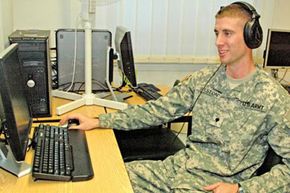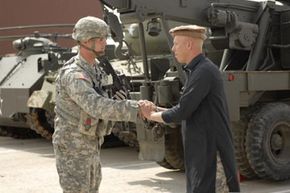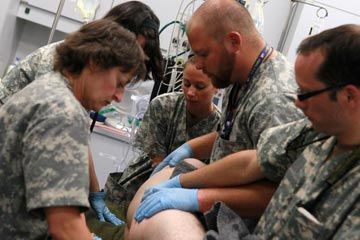Wouldn't you love to get paid to go to school to learn a language and then travel the world with your new-found knowledge? Did you know the U.S. Army will pay you to do just that? As an Army linguist, you could get paid to learn one of 24 different languages, as well as travel to several foreign countries to serve as a translator or a cryptologist [source: GoArmy.com]. So, if you're already fluent in multiple languages -- or you're adept at learning new ones -- a career as an Army linguist may be just what you're looking for.
Communicating with citizens of other countries and understanding their culture is paramount to many of the Army's efforts -- not just in its defensive operations, but in its humanitarian missions, as well. If you meet the criteria for one of the many positions under the linguist umbrella, the Army will pay you well for your skills. In addition to the standard benefits you would receive as a soldier, as a linguist you would also qualify for Foreign Language Proficiency Pay, which could add an additional $400 to $1,000 a month to your paycheck for each language you're proficient in [source: GoArmy.com].
Advertisement
So what if you're not fluent in any languages other than English, and you're still interested in becoming a linguist? Because there's a high demand for linguists in every aspect of foreign military exchanges, including intelligence, negotiations, special operations and more, even if you have no previous training, the Army is still interested in you if you have a knack for learning languages [source: USArmy.com]. The Army trains soldiers at its Defense Language Institute at no cost to the recruits. In fact, the soldiers are paid a full salary and provided housing and benefits, including a retirement plan, while attending school [source: USArmy.com].
Another benefit of training at the Defense Language Institute is the potential to earn an associate's degree if you transfer 15 non-language credits from another accredited institution. This degree can help you go further with your career while you're enlisted and once you are discharged. Next we'll discuss what types of jobs the Army offers for linguists.
Advertisement



